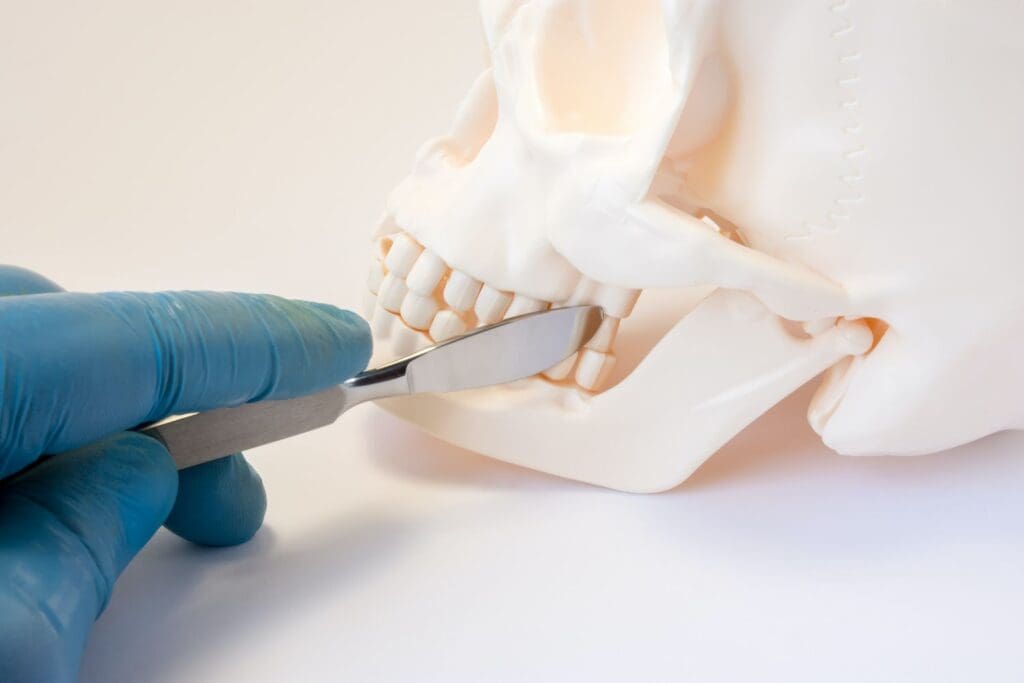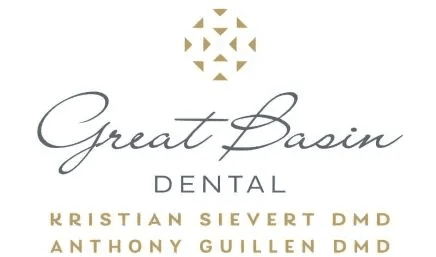Facing a necessary extraction? Dr. Guillen & Dr. Sievert provide gentle, judgment-free care to relieve pain and protect your oral health. You’re in expert, caring hands.
Let’s be honest, the idea of having a tooth pulled can be unsettling. We understand that completely. At Great Basin Dental, Dr. Tony Guillen and Dr. Kristian Sievert want you to know that if we’re recommending an extraction, it’s for one important reason: to remove a source of pain or infection and protect the health of your entire smile.
We approach every extraction with precision, gentleness, and deep respect for your comfort. Our goal is to turn a procedure you might dread into a manageable, positive step toward lasting oral health. You’re not just a number here; you’re our neighbor, and we’ll guide you through this with clear communication and compassionate care.

Simple vs. Surgical Extraction: What’s the Difference?
Not all extractions are the same. The type you need depends on the tooth’s condition and position.
- Simple Extraction: This is for teeth that are fully visible and accessible above the gumline. After numbing the area, we gently loosen the tooth and lift it from its socket. It’s a straightforward procedure with minimal downtime.
- Surgical Extraction: This is needed for teeth that are broken off at the gumline, severely impacted (like some wisdom teeth), or haven’t fully erupted. It involves a small incision in the gum to access the tooth. Don’t let the term “surgical” alarm you. It’s a routine, controlled procedure performed with great care to ensure your comfort and safety.
Dr. Guillen or Dr. Sievert will explain exactly which type you need and why, using digital X-rays to show you the situation clearly. There are never any surprises.
When is Removing a Tooth the Right Decision?
Our philosophy is always to save your natural tooth whenever possible. An extraction is a last resort, recommended only when it’s the best way to safeguard your overall oral health. Common reasons include:
- A Tooth Beyond Repair: When severe decay or a fracture extends deep below the gumline, making the tooth unsalvageable with a crown or root canal.
- Advanced Gum Disease: If the bone supporting a tooth has been destroyed by periodontal disease, leaving the tooth hopelessly loose.
- Impacted Wisdom Teeth: Wisdom teeth that are trapped (impacted), causing pain, risking infection, or damaging adjacent teeth.
- Preparing for Orthodontics: To create necessary space for braces to properly align your teeth.
Your Comfort-First Procedure: What to Expect
From the moment you sit in our chair, our focus is on your well-being. Here’s how we ensure your experience is as smooth and anxiety-free as possible.
- Clear Communication & Planning: First, we listen. We’ll review your X-rays, explain the procedure in plain English, and answer every question you have. Knowledge eases worry.
- Total Numbing for Comfort: We will thoroughly numb the area with a local anesthetic. You should feel pressure, not pain. For patients with anxiety, we offer oral conscious sedation to help you feel deeply relaxed and at ease.
- The Gentle Removal: Using specialized instruments, your dentist will carefully remove the tooth with the least amount of tissue disturbance possible.
- Your Personalized Aftercare Kit: Healing starts immediately. We won’t just hand you a generic printout. We’ll provide clear, verbal and written instructions tailored to you, covering how to manage bleeding, discomfort, diet, and hygiene. You’ll also have our direct contact information for any questions during recovery.
Your Extraction Questions Answered
Will it hurt during the procedure?
You will be profoundly numb. You’ll feel pressure and movement, but you shouldn’t feel sharp pain. If you do, tell us immediately. We can always give you more anesthetic.
I’m really anxious. Can you help?
Absolutely. We offer oral conscious sedation for this very reason. You’ll take a small pill before your appointment to achieve a state of deep relaxation. You’ll be awake but unconcerned, and many patients have little memory of the procedure afterward.
How long does recovery take?
Initial healing (gum tissue closing over the socket) takes 1-2 weeks. The underlying bone will fill in over the next few months. Most people feel significantly better and resume normal activities within 2-3 days.
What is a “dry socket” and how do I avoid it?
A dry socket happens when the protective blood clot is dislodged too early and exposes the bone and nerves. It’s painful but treatable. You avoid it by following our aftercare: no straws, no smoking, no spitting for the first few days.
Do I need to replace the extracted tooth?
Not always, but we may recommend it to prevent shifting of adjacent teeth and bone loss. We will discuss all your replacement options (implant, bridge, partial denture) before your extraction so you have a complete plan.
Can you refer me to a surgeon for wisdom teeth?
Yes! We have strong relationships with excellent local oral surgeons and can provide a trusted referral.
Get Comfortable Tooth Extractions at Great Basin Dental
Living with a painful or infected tooth is exhausting and risky for your health. If you’re in the Reno area and struggling with tooth pain, or have been told you need an extraction, reach out. Let us provide the gentle, expert care you need to get out of pain and back on track to a healthy smile.
Schedule a consultation with Dr. Guillen or Dr. Sievert. Contact us at 775-363-9644 or request an appointment online. We’ll give you a clear, honest assessment and a comfortable path forward.
